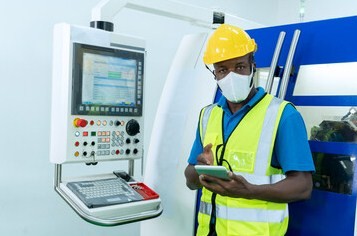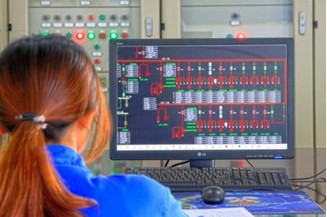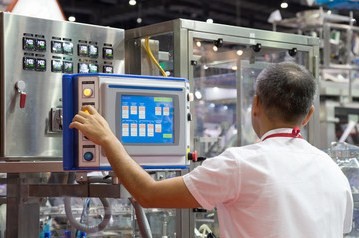
Instrument and Control Systems Technology is one of today’s most viable careers. Entry-level jobs are available in a variety of companies and industries. Technicians with associate degrees enjoy challenging and rewarding positions in a career that is essential in business and industry.
Government compliance, such as OSHA guidelines, has caused company leaders to put safety as a priority ahead of profits and production. Technicians do their part to keep factories and plants running smoothly, efficiently, and safely. Let’s explore this technology and career in more detail.
Understanding the Basics of Instrument and Control Systems Technology
Businesses and industries depend on technicians that can install, maintain, repair, troubleshoot, and adjust instruments and control systems.

They measure and control these instruments to make sure their production and processing lines are running to the correct standards. Their efforts ensure their factories and plants are operating effectively and safely.
Instrument and Control Systems Technology is used in high-tech industries like:
| ● Aerospace | ● Power and energy |
| ● Bio-pharmaceutical | ● Pulp and paper mills |
| ● Food canneries | ● Semiconductor Manufacturing |
| ● Chemical manufacturing | ● Water and waste-water |
Instrumentation professionals design, detail, maintain and troubleshoot control systems in hundreds of different industries. They do this essential work for their clients, companies, and industries to keep efficiency and safety at a high level.
Instrumentation Explained
We learn from the Instrumentation and Systems Automation Society (ISA) that Instrumentation is the branch of engineering that deals with measurement and control. It is also a collection of instruments and their applications for observation, measurement, and control.

An instrument is essentially a device that measures and/or manipulates physical process variables. Instruments are parts of control systems in factories and plants and include:
- Analyzers
- Transmitters
- Valves
Typical physical variables found in factories and plants include density, flow, level, pressure, radiation, temperature, and viscosity. Technicians work with them to control processes in this branch of applied instrumentation. Instrumentation also plays an essential role in gathering information from the field to coordinate with factory and plant operations.
“Business and Industry depend on technicians that can install, maintain, repair, troubleshoot, and adjust instruments and control systems. Their efforts ensure their factories and plants are operating effectively and safely.”
The Nature of Control Systems

Manufacturing and processing facilities must use control systems to keep production up to predetermined standards of quantity, quality, safety, and expense control. Control systems can change a field parameter, or standards, provide remote access, or control capability automation. Control instruments include these basic devices:
- Circuit breakers
- Relays
- Solenoids
- Valves
To control processes in a system, technicians use microprocessors, microcontrollers, PLCs, and other electronic components to set the parameters or values of a system. Instrumentation and control are essential parts of automation worldwide.
Factories and processing plants must control their activities to prevent failures. Failures can result in injuries, production loss, damage to systems, penalties, plant shutdowns, compliance failures, and worst of all, human lives. When control systems cause such serious problems, a company’s or industry’s image can be severely hurt.
How Electronics Play a Role in This Technology
Electronics is at the heart of Instrument and Control Systems Technology in all applications, companies, and industries. The devices, equipment, computer, and controls are all made up of electronic components that are powered by electricity. Technicians who work in this career are trained in electronic and electrical theory, knowledge, skills, and practice.
Many companies have power and energy backups to keep instruments and systems running in the event of a power outage or natural disaster. Technicians work with engineers, plant operators, and electricians to keep their factories and plants up and running at peak performance.
Earn Your Degree in Instrument and Control Systems Technology and Go to Work
Working as an Instrument and Control Systems technician is a strong choice for students looking for a high-wage career. An entry-level position can be obtained with an associate degree, and the career has employment potential nationwide and beyond.
ITI Technical College offers an Associate of Occupational Studies (AOS) Degree in its Instrument and Control Systems Technology Program. Learn more about this exciting program by contacting one of our admissions representatives.
For more information about graduation rates, the median debt of students who completed the program, and other important information, please visit our website: https://iticollege.edu/disclosures




